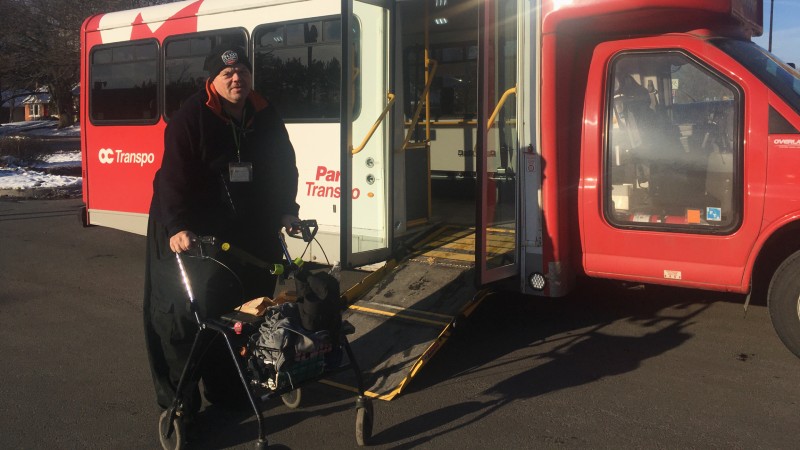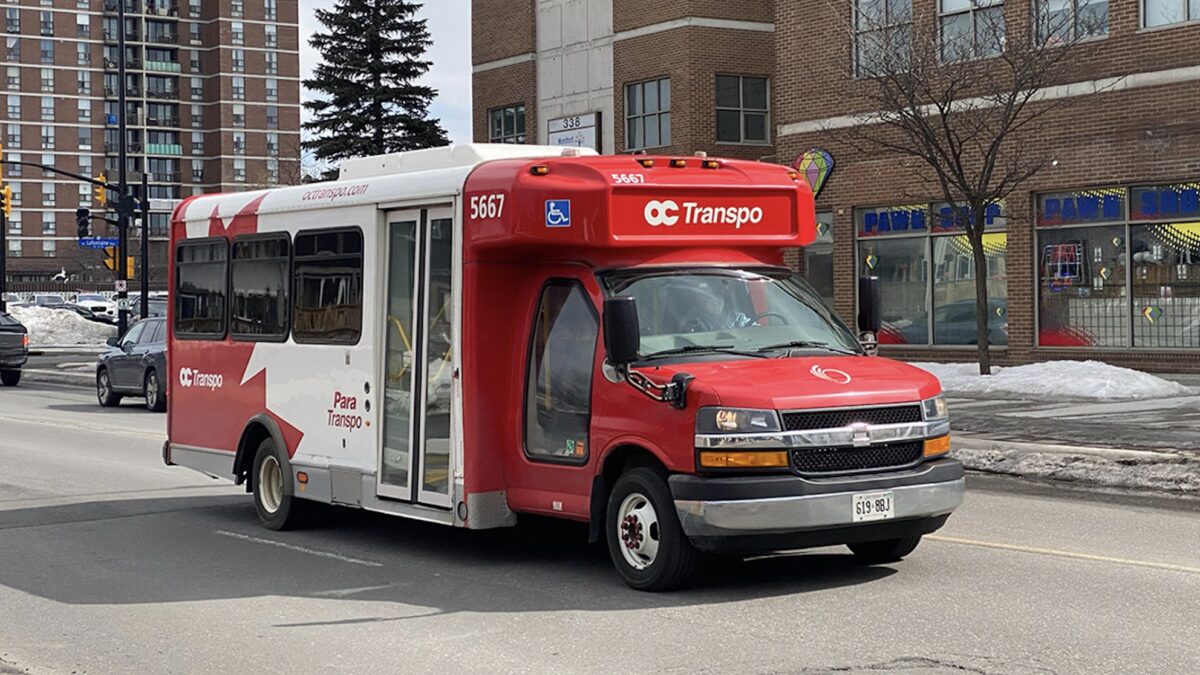Para Transpo riders say they are still being left behind despite an overhaul of the booking system last year.
Following years of advocacy by Para Transpo riders, an online booking option was introduced in April 2022. My Para Transpo allows users to schedule and manage their trips online, providing an alternative to long call wait times of up to six hours.
But Para Transpo users say the online booking system has failed to address one of their biggest concerns: the lack of same-day bookings.
John Redins is a disability advocate who has been relying on Para Transpo since 2010. Both he and his wife, Susan Redins, depend on Para Transpo to commute across the city from their home in south-end Ottawa to their jobs at the Canadian Tire Centre in Kanata. For John, the inability to make same-day bookings is a major source of stress and anxiety.
“There’s hardly been (any) change. The lack of same-day bookings, it’s a big issue, it’s a mental health issue,” he said.
“The lack of same-day bookings is a drag on your life. It’s one of my biggest frustrations,” John added. “You can’t go anywhere spur-of-the-moment. If a friend wants to go with you to a movie last minute, you can’t go.”
Para Transpo provides shared rides that can be booked in advance for customers who are unable to take conventional public transit due to mobility issues or other challenges involving disability. The service operates using both mini-buses and contracted taxis for trips within the National Capital Region.
‘The lack of same-day bookings is a drag on your life. It’s one of my biggest frustrations. You can’t go anywhere spur-of-the-moment. If a friend wants to go with you to a movie last minute, you can’t go.’
— John Redins, Para Transpo user and advocate for reform
“We need to have a transit system that responds to all users and accessibility is a major concern,” said Alta Vista Coun. Marty Carr, a member of the city’s transit commission.
“You’re now at least able to book Para Transpo the day before, but you can’t book on the date. There have been some changes, but we need to make sure that we have equity in our transit system,” Carr said.
The return to nearly pre-pandemic levels of ridership means an increase in trip demand and a decrease in Para Transpo reliability.
“During the pandemic, people weren’t going out as much, other than getting groceries and going to doctor’s appointments. Now everything is getting back to normal and it’s getting busier,” said Susan Redins.

Para Transpo ridership is currently at 76 per cent of pre-pandemic levels compared to 62 per cent for conventional OC Transpo. Para Transpo ridership has continued to increase with 57,000 customer trips being taken in January compared to 53,900 customer trips being taken in December 2022.
“Sometimes they’re now changing people’s schedules to accommodate them, because the buses are running so far behind. They’re changing their pick-up schedules by half-an-hour to an hour, and they don’t tell you that it’s happening,” John said.
He said restoring users’ trust in Para Transpo begins with better communication between users and the city.
“Listen to us more than they listen to the management,” he said, adding that while Para Transpo management often tells “a good story” about the state of its service, “the actual issues are not a good story, it hasn’t improved.”
He said: “If you don’t feel it or taste it, you don’t know what it’s like.”
Clearer communication between Para Transpo riders and the city is a goal shared by Stittsville Coun. Glen Gower, the chair of the transit commission told Capital Current.
“I think first and foremost is to make sure that we do have a good dialogue about Para Transpo,” said Gower.
“There have been some improvements, but I know we’ve had a lot of feedback that there’s still more that could be done to make it easier to book Para Transpo.”
The 2023 City of Ottawa budget was passed unanimously on March 1. It allocates $15.199 million to replace part of Para Transpo’s fleet of 80 mini-buses.




